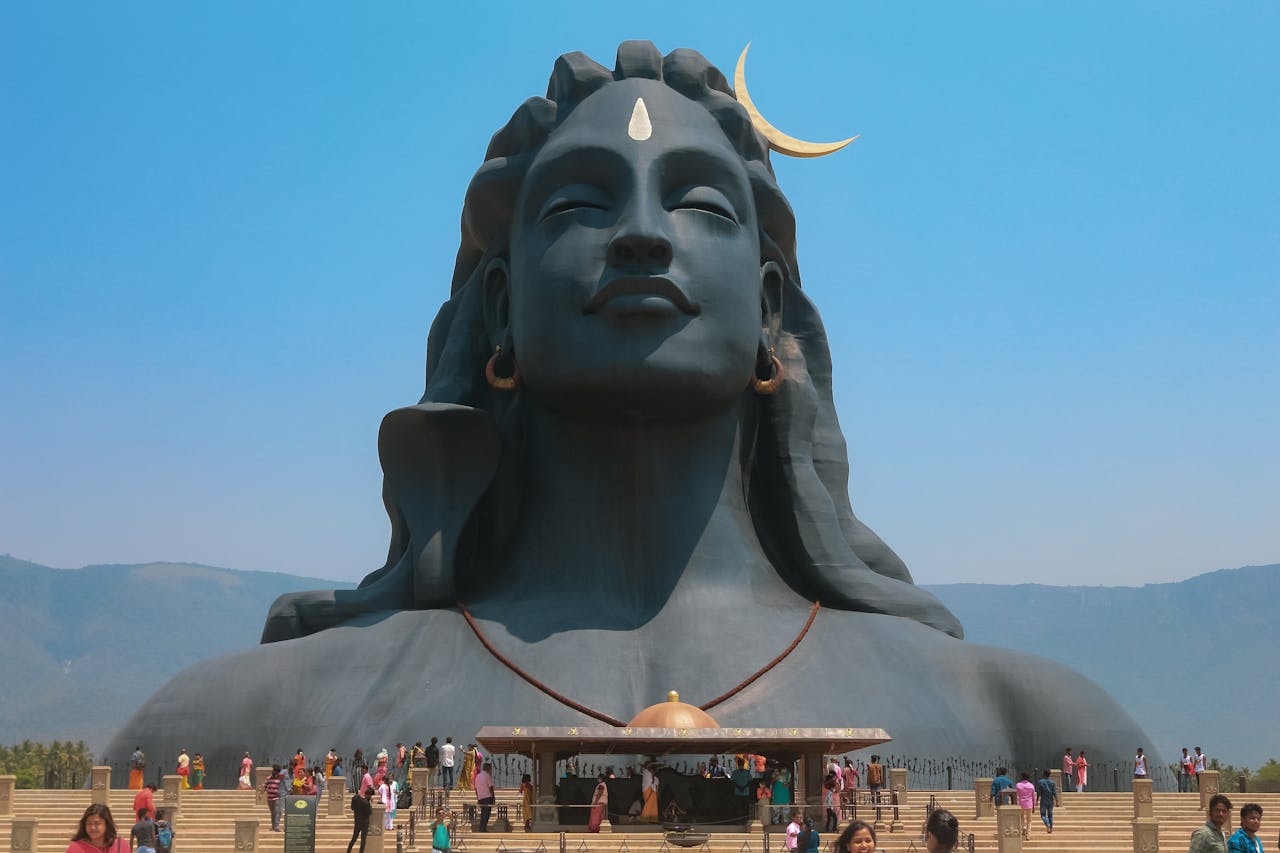Shivashtakam is a powerful mantra written to give glory to the Hindu god Shiva. A devotee must sing this with full devotion after taking a bath and wearing clean white clothes. He must go to any Shiva temple with some sandalwood, flowers, bel leaves, cow’s milk, rice, fruits, and other offerings – and of course, with a pure heart – and he will get blessed by Shiva with immense strength and light to fight and get through problems and challenges in life.
Shivashtakam is one example of ashtakam, which is a poetic composition written in Sanskrit with eight verses or stanzas and is typically arranged as sets of rhyming quartets. Ashtakams are a popular type of Indian poetry and Sanskrit literature and Hindu literature. It’s a generally accepted genre of devotional and poetry during the golden period of Sanskrit literature. Shivashtakam talks about the different attributes of Shiva, where the speaker who sings it prays to the Hindu god.
The Meaning of Shivashtakam in English
If you do not understand Sanskrit, here’s a translation of what the Shivashtakam means:
First Verse:
PrabhuṃpraṇanathaṃvibhuṃvisvanathaṃJagannathanathaṃsadanandabhajam
Bhavadbhavyabhutesvaraṃbhutanathaṃ, sivaṃsaṅkaraṃsambhumisanamiḍe
Translation:
I pray to You, Shiva, Shankara, Shambhu, Who is the Lord, Who is the Lord of our lives, Who is Vibhu, Who is the Lord of the world, Who is the Lord of Vishnu (Jagannatha), Who is always dwelling in happiness, Who imparts light or shine to everything, Who is the Lord of living beings, Who is the Lord of ghosts, and Who is the Lord of everyone.
Second Verse:
Gaḷeruṇḍamalaṃtanausarpajalaṃmahakalakalaṃgaṇesadipalam
Jaṭajuṭagaṅgottaraṅgairvisalaṃ, sivaṃsaṅkaraṃsambhumisanamiḍe
Translation:
I pray to You, Shiva, Shankara, Shambhu, Who has a garland of skull around the neck, Who has a net of snakes around His body, Who is the destroyer of the immense-destroyer Kala, Who is the Lord of Ganesa, Whose matted-hair are spread-out by the presence of the waves of Ganga falling on His head, and Who is the Lord of everyone.
Third Verse:
Mudamakaraṃmaṇḍanaṃmaṇḍayantaṃmahamaṇḍalaṃbhasmabhuṣadharaṃ tam
Anadiṃhyaparaṃmahamohamaraṃ, sivaṃsaṅkaraṃsambhumisanamiḍe
Translation:
I pray to You, Shiva, Shankara, Shambhu, Who scatters happiness (in the world), Who is ornating the universe, Who is the immense universe Himself, Who is possessing the adornment of ashes, Who is without a beginning, Who is without a measure, Who removes the greatest attachments, and Who is the Lord of everyone.
Fourth Verse:
Vaṭadhonivasaṃmahaṭṭaṭṭahasaṃmahapapanasaṃsadasuprakasam
Girisaṃgaṇesaṃsuresaṃmahesaṃ, sivaṃsaṅkaraṃsambhumisanamiḍe
Translation:
I pray to You, Shiva, Shankara, Shambhu, Who resides below a Vata (Banyan) tree, Who possesses an immense laughter, Who destroys the greatest sins, Who is always resplendent, Who is the Lord of Himalaya, various Gana and the demi-gods, Who is the great Lord, and Who is the Lord of everyone.
Fifth Verse:
Girindratmajasaṅgṛhitardhadehaṃgirausaṃsthitaṃsarvadapannageham
Parabrahmabrahmadibhir-vandyamanaṃ, sivaṃsaṅkaraṃsambhumisanamiḍe
Translation:
I pray to You, Shiva, Shankara, Shambhu, Who shares half of His body with the daughter of Himalaya, Who is situated in a mountain (Kailasa), Who is always a resort for the depressed, Who is the Atman, Who is revered by (or Who is worthy of reverence by) Brahma and others, and Who is the Lord of everyone.
Sixth Verse:
Kapalaṃtrisulaṃkarabhyaṃdadhanaṃpadambhojanamrayakamaṃdadanam
Balivardhamanaṃsuraṇaṃpradhanaṃ, sivaṃsaṅkaraṃsambhumisanamiḍe
Translation:
I pray to You, Shiva, Shankara, Shambhu, Who holds a skull and a trident in the hands, Who endows the desires of those who are humble to His lotus-feet, Who uses an Ox as a vehicle, Who is supreme and above various demi-gods, and Who is the Lord of everyone.
Seventh Verse:
Saraccandragatraṃgaṇanandapatraṃtrinetraṃpavitraṃdhanesasyamitram
Aparṇakaḷatraṃsadasaccaritraṃ, sivaṃsaṅkaraṃsambhumisanamiḍe
Translation:
I pray to You, Stiva, Shankara, Shambhu, Who has a face like the Winter-moon, Who is the subject of happiness of Gana, Who has three eyes, Who is pure, Who is the friend of Kubera (controller of wealth), Who is the consort of Aparna (Parvati), Who has eternal characteristics, and Who is the Lord of everyone.
Eight Verse:
Haraṃsarpaharaṃcitabhuviharaṃbhavaṃvedasaraṃsadanirvikaraṃ
Smasanevasantaṃmanojaṃdahantaṃ, sivaṃsaṅkaraṃsambhumisanamiḍe
Translation:
I pray to You, Shiva, Shankara, Shambhu, Who is known as Hara, Who has a garland of snakes, Who roams around the cremation grounds, Who is the universe, Who is the summary of the Veda (or the One discussed by Veda), Who is always dispassionate, Who is living in the cremation grounds, Who is burning desires born in the mind, and Who is the Lord of everyone.
If you want to check the Shivashtakam lyrics in Telugu.
